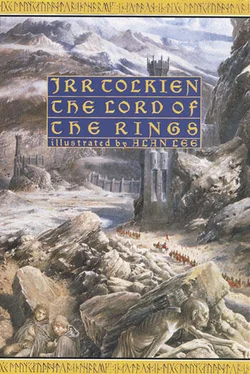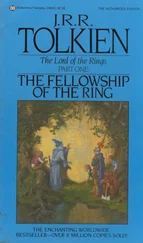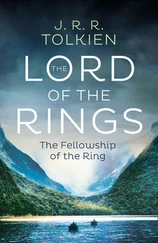Having goneso far in my attempt to modernize and make familiar the language and names of Hobbits, I found myself involved in a further process. The Mannish languages that were related to the Westron should, it seemed to me, be turned into forms related to English. The language of Rohan I have accordingly made to resemble ancient English, since it was related both (more distantly) to the Common Speech, and (very closely) to the former tongue of the northern Hobbits, and was in comparison with the Westron archaic. In the Red Book it is noted in several places that when Hobbits heard the speech of Rohan they recognized many words and felt the language to be akin to their own, so that it seemed absurd to leave the recorded names and words of the Rohirrim in a wholly alien style.
In several cases I have modernized the forms and spellings of place-names in Rohan: as in Dunharrow or Snowbourn; but I have not been consistent, for I have followed the Hobbits. They altered the names that they heard in the same way, if they were made of elements that they recognized, or if they resembled place-names in the Shire; but many they left alone, as I have done, for instance, in Edoras ‘ the courts’. For the same reasons a few personal names have also been modernized, as Shadowfax and Wormtongue. [99]
This assimilation also provided a convenient way of representing the peculiar local hobbit-words that were of northern origin. They have been given the forms that lost English words might well have had, if they had come down to our day. Thus mathom is meant to recall ancient English máthm, and so to represent the relationship of the actual Hobbit kast to R. kastu. Similarly smial (or smile) ‘burrow’ is a likely form for a descendant of smygel, and represents well the relationship of Hobbit trân to R. trahan. Sméagol and Déagol are equivalents made up in the same way for the names Trahald ‘burrowing, worming in’, and Nahald ‘secret’ in the Northern tongues.
The still more northerly language of Dale is in this book seen only in the names of the Dwarves that came from that region and so used the language of the Men there, taking their ‘outer’ names in that tongue. It may be observed that in this book as in The Hobbit the form dwarves is used, although the dictionaries tell us that the plural of dwarf is dwarfs. It should be dwarrows (or dwerrows), if singular and plural had each gone its own way down the years, as have man and men, or goose and geese. But we no longer speak of a dwarf as often as we do of a man, or even of a goose, and memories have not been fresh enough among Men to keep hold of a special plural for a race now abandoned to folk-tales, where at least a shadow of truth is preserved, or at last to nonsense-stories in which they have become mere figures of fun. But in the Third Age something of their old character and power is still glimpsed, if already a little dimmed; these are the descendants of the Naugrim of the Elder Days, in whose hearts still burns the ancient fire of Aulë the Smith, and the embers smoulder of their long grudge against the Elves; and in whose hands still lives the skill in work of stone that none have surpassed.
It is to mark this that I have ventured to use the form dwarves, and remove them a little, perhaps, from the sillier tales of these latter days. Dwarrows would have been better; but I have used that form only in the name Dwarrowdelf, to represent the name of Moria in the Common Speech: Phurunargian. For that meant ‘Dwarf-delving’ and yet was already a word of antique form. But Moria is an Elvish name, and given without love; for the Eldar, though they might at need, in their bitter wars with the Dark Power and his servants, contrive fortresses underground, were not dwellers in such places of choice. They were lovers of the green earth and the lights of heaven; and Moria in their tongue means the Black Chasm. But the Dwarves themselves, and this name at least was never kept secret, called it Khazad-dûm, the Mansion of the Khazâd; for such is their own name for their own race, and has been so, since Aulë gave it to them at their making in the deeps of time.
Elves has been used to translate both Quendi, ‘the speakers’, the High-elven name of all their kind, and Eldar, the name of the Three Kindreds that sought for the Undying Realm and came there at the beginning of Days (save the Sindar only). This old word was indeed the only one available, and was once fitted to apply to such memories of this people as Men preserved, or to the makings of Men’s minds not wholly dissimilar. But it has been diminished, and to many it may now suggest fancies either pretty or silly, as unlike to the Quendi of old as are butterflies to the swift falcon — not that any of the Quendi ever possessed wings of the body, as unnatural to them as to Men. They were a race high and beautiful, the older Children of the world, and among them the Eldar were as kings, who now are gone: the People of the Great Journey, the People of the Stars. They were tall, fair of skin and grey-eyed, though their locks were dark, save in the golden house of Finarfin; [100]and their voices had more melodies than any mortal voice that now is heard. They were valiant, but the history of those that returned to Middle-earth in exile was grievous; and though it was in far-off days crossed by the fate of the Fathers, their fate is not that of Men. Their dominion passed long ago, and they dwell now beyond the circles of the world, and do not return.
Note on three names: Hobbit, Gamgee, and Brandywine.
Hobbit is an invention. In the Westron the word used, when this people was referred to at all, was banakil ‘halfling’. But at this date the folk of the Shire and of Bree used the word kuduk, which was not found elsewhere. Meriadoc, however, actually records that the King of Rohan used the word kûd-dûkan ‘hole-dweller’. Since, as has been noted, the Hobbits had once spoken a language closely related to that of the Rohirrim, it seems likely that kuduk was a worn-down form of kûd-dûkan. The latter I have translated, for reasons explained, by holbytla; and hobbit provides a word that might well be a worn-down form of holbytla, if that name had occurred in our own ancient language.
Gamgee. According to family tradition, set out in the Red Book, the surname Galbasi, or in reduced form Galpsi, came from the village of Galabas, popularly supposed to be derived from galab- ‘game’ and an old element bas-, more or less equivalent to our wick, wich. Gamwich (pronounced Gammidge) seemed therefore a very fair rendering. However, in reducing Gammidgy to Gamgee, to represent Galpsi, no reference was intended to the connexion of Samwise with the family of Cotton, though a jest of that kind would have been hobbit-like enough, had there been any warrant in their language.
Cotton, in fact, represents Hlothran, a fairly common village-name in the Shire, derived from hloth, ‘a two-roomed dwelling or hole’, and ran(u) a small group of such dwellings on a hill-side. As a surname it may be an alteration of hlothram(a) ‘cottager’. Hlothram, which I have rendered Cotman, was the name of Farmer Cotton’s grandfather.
Brandywine. The hobbit-names of this river were alterations of the Elvish Baranduin (accented on and), derived from baran ‘golden brown’ and duin ‘(large) river’. Of Baranduin Brandywine seemed a natural corruption in modern times. Actually the older hobbit-name was Branda-nîn ‘border-water’, which would have been more closely rendered by Marchbourn; but by a jest that had become habitual, referring again to its colour, at this time the river was usually called Bralda-hîm ‘heady ale’.
Читать дальше
Конец ознакомительного отрывка
Купить книгу












